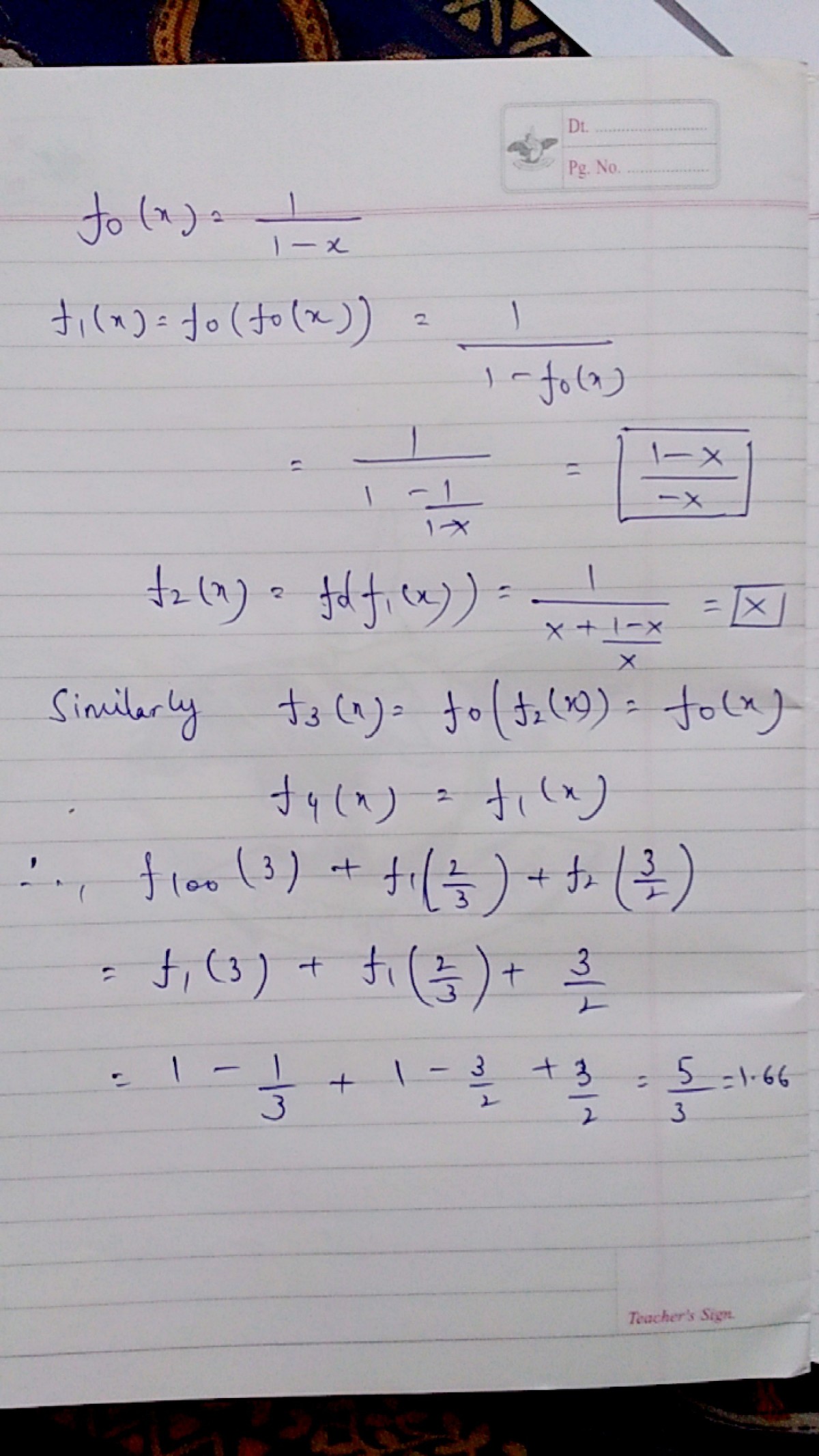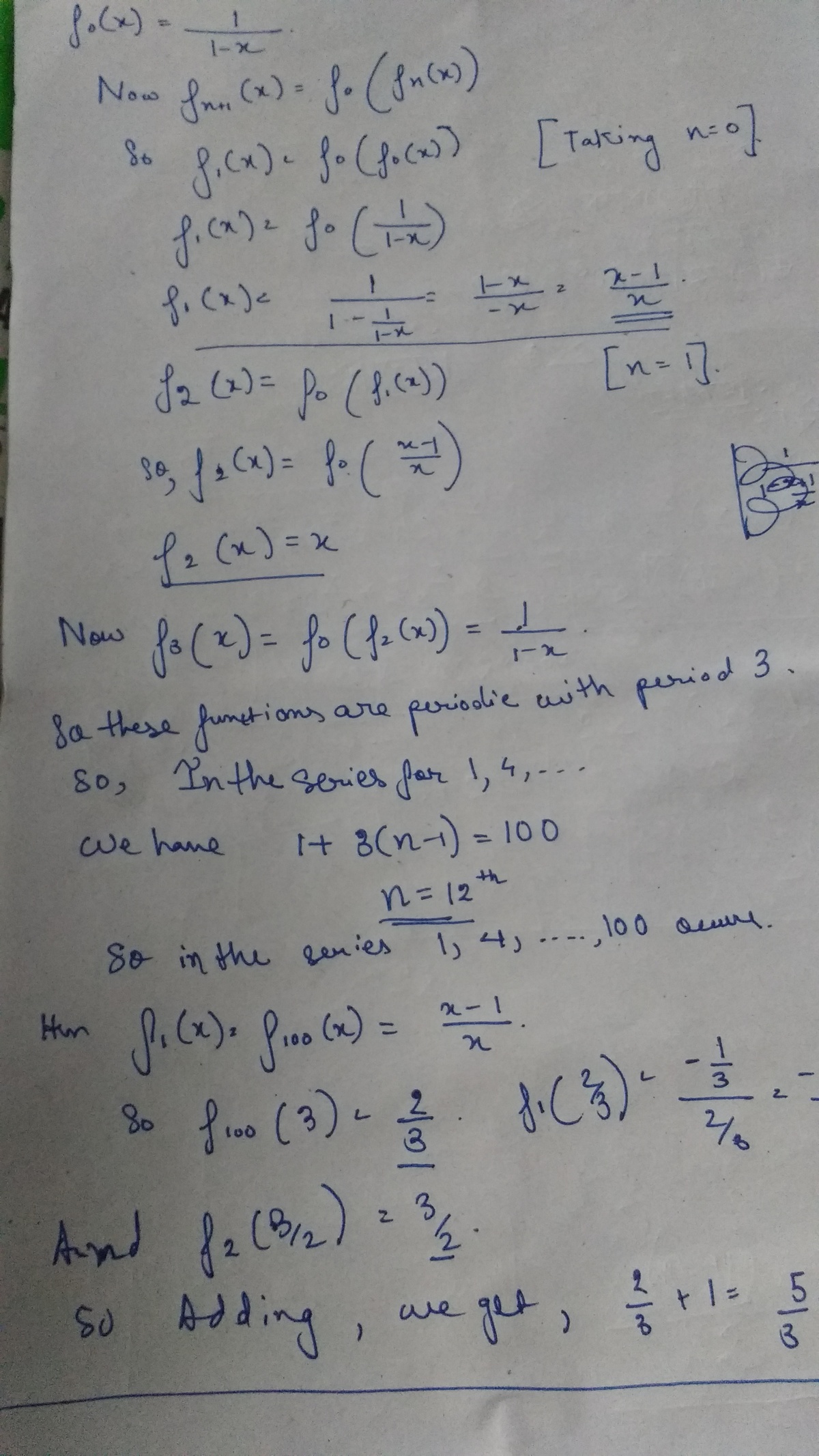An algebra problem by Rahil Sehgal
Let x = 0 , 1 be a real number such that f 0 ( x ) = 1 − x 1 and f n + 1 ( x ) = f 0 ( f n ( x ) ) for n = 0 , 1 , 2 , … .
Find the value of f 1 0 0 ( 3 ) + f 1 ( 3 2 ) + f 2 ( 2 3 ) .
Give your answer truncated to 2 decimal places.
The answer is 1.66.
This section requires Javascript.
You are seeing this because something didn't load right. We suggest you, (a) try
refreshing the page, (b) enabling javascript if it is disabled on your browser and,
finally, (c)
loading the
non-javascript version of this page
. We're sorry about the hassle.
3 solutions
f 0 ( x ) f 1 ( x ) f 2 ( x ) f 3 ( x ) ⟹ f n ( x ) = 1 − x 1 = f 0 ( f 0 ( x ) ) = 1 − 1 − x 1 1 = − x 1 − x = x x − 1 = 1 − x 1 = 1 − 1 + x 1 1 = x = f 0 ( x ) = f n − 3 ( x ) = ⎩ ⎪ ⎪ ⎪ ⎨ ⎪ ⎪ ⎪ ⎧ 1 − x 1 1 − x 1 x if n mod 3 = 0 if n mod 3 = 1 if n mod 3 = 2
⟹ f 1 0 0 ( 3 ) + f 1 ( 3 2 ) + f 2 ( 2 3 ) = f 1 ( 3 ) + f 1 ( 3 2 ) + f 2 ( 2 3 ) = 1 − 3 1 + 1 − 2 3 + 2 3 = 3 5 ≈ 1 . 6 6

